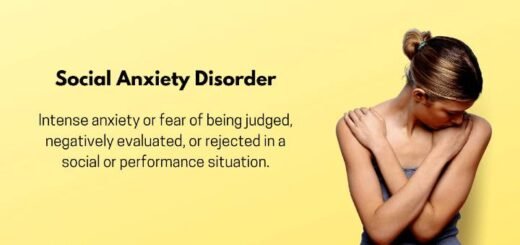Conquering Social Anxiety: Proven Coping Strategies
Social anxiety can significantly impact daily life, making everyday interactions feel daunting. For individuals in New Zealand grappling with this condition, understanding effective coping strategies is crucial. By exploring various techniques and social anxiety solutions, individuals can learn to navigate their fears and enhance their quality of life.
Incorporating practical methods such as mindfulness, gradual exposure, and cognitive restructuring can empower those facing social anxiety. Resources like the Kiwi’s Guide to Coping offer tailored social anxiety solutions that resonate with the unique cultural context of New Zealand, providing valuable insights and support. Implementing these strategies can foster resilience and promote a more fulfilling social experience.
Understanding Social Anxiety
The Nature of Social Anxiety
Social anxiety is more than just shyness; it’s a persistent fear of social situations that can lead to significant distress. Individuals with social anxiety often worry excessively about being judged or embarrassed in front of others. This fear can manifest in various ways, including a rapid heartbeat, sweating, or even avoiding social situations altogether. Understanding this condition is crucial for developing effective coping strategies.
Statistics in New Zealand
In New Zealand, social anxiety is a common mental health issue. Research indicates that around one in ten Kiwis experience social anxiety at some point in their lives. This statistic underscores the importance of addressing social anxiety solutions in our communities. The prevalence of this disorder highlights the need for effective coping strategies tailored to the unique cultural context of New Zealand.
Recognizing Triggers
Identifying specific triggers that exacerbate social anxiety can be instrumental in managing symptoms. For many, triggers may include public speaking, meeting new people, or attending social gatherings. Keeping a journal to document these instances can help individuals recognize patterns and prepare for future situations. In New Zealand, social gatherings often revolve around community events or family functions, and being aware of potential stressors can help individuals approach these events with more confidence.
The Importance of Seeking Help
It’s essential to recognize that seeking help is a strength, not a weakness. Many resources are available in New Zealand to support those struggling with social anxiety. Consulting mental health professionals, such as psychologists or counselors, can provide tailored strategies for managing anxiety. Websites like Social Phobia New Zealand offer valuable resources and support networks for those looking to overcome their fears.
Developing Mindfulness Techniques
The Role of Mindfulness in Coping
Mindfulness techniques can be powerful tools for managing social anxiety. These practices involve becoming aware of your thoughts and feelings without judgment. Mindfulness encourages individuals to stay grounded in the present moment, which can help alleviate anxious thoughts about social interactions.
Breathing Exercises
One effective mindfulness technique is deep breathing. Before entering a social situation, take a few moments to practice deep breathing. Inhale deeply through your nose, hold for a few seconds, and exhale slowly through your mouth. This simple exercise can help calm nerves and reduce anxiety. In New Zealand, you can practice this technique in quiet spaces like parks or beaches before attending an event.
Guided Meditation
Incorporating guided meditation into your routine can also be beneficial. There are numerous apps and online resources available that provide structured meditation sessions designed to reduce anxiety. Setting aside time each day to practice can create a sense of calm and resilience, making it easier to face social situations.
Utilizing Nature
New Zealand’s stunning landscapes provide an ideal backdrop for mindfulness practices. Whether it’s a walk through a native forest or sitting by a serene lake, immersing yourself in nature can enhance mindfulness and alleviate anxiety. Engaging with the natural environment can serve as a grounding technique, helping to shift focus away from anxious thoughts.
Building Social Skills Gradually
The Importance of Social Skills
Developing social skills is vital for managing social anxiety effectively. Building these skills gradually can help individuals feel more comfortable in social settings. Start by engaging in low-pressure interactions, such as greeting a neighbor or chatting with a barista. Gradual exposure to social situations can increase confidence over time.
Role-Playing Scenarios
Role-playing can be an effective way to practice social interactions in a safe environment. Partnering with a trusted friend or family member to role-play different social scenarios can help prepare for real-life interactions. This practice can improve communication skills and reduce anxiety about potential awkwardness in social situations.
Joining Clubs or Groups
Consider joining clubs or groups that align with personal interests. In New Zealand, community groups focused on hobbies, sports, or cultural activities provide opportunities for social engagement in a structured environment. These settings often foster supportive atmospheres, making it easier to practice social skills without the pressure of formal social gatherings.
Setting Realistic Goals
Setting achievable social goals can also facilitate skill development. For instance, aim to initiate a conversation with one new person at an event. Celebrating small victories can build confidence and encourage further social engagement, ultimately contributing to long-term management of social anxiety.
Utilizing Cognitive Behavioral Techniques
Cognitive Restructuring
Cognitive Behavioral Therapy (CBT) is an effective treatment for social anxiety. One core component of CBT is cognitive restructuring, which involves challenging negative thought patterns. By identifying and reframing irrational fears about social situations, individuals can reduce the emotional impact of these thoughts.
Exposure Therapy
Exposure therapy is another key aspect of CBT. This technique involves gradually exposing oneself to feared social situations in a controlled manner. Start with less intimidating scenarios and slowly work up to more challenging ones. In New Zealand, this might involve attending small community events before progressing to larger gatherings.
Kiwis and Humor
New Zealanders often use humor to diffuse social anxiety. Embracing a lighthearted attitude toward social interactions can make them feel less daunting. Finding ways to incorporate humor and laughter into social situations can create a more relaxed atmosphere and relieve tension.
Self-Reflection Journals
Keeping a self-reflection journal can aid in the CBT process. Write about social experiences, noting thoughts, feelings, and outcomes. This practice can help individuals see progress over time and reinforce positive changes in thinking patterns. Reflecting on successes, no matter how small, can build a sense of achievement.
Creating a Supportive Social Network
The Value of Support Systems
Having a supportive social network is crucial for managing social anxiety. Surrounding oneself with understanding friends and family can provide a safe space for discussing fears and challenges. Open communication about social anxiety can foster empathy and support within relationships.
Joining Support Groups
Consider joining a support group for individuals with social anxiety. These groups provide a platform for sharing experiences and coping strategies. In New Zealand, organizations like Social Phobia New Zealand offer support groups that can connect individuals with others facing similar challenges.
Participating in Social Activities
Encourage friends or family to participate in social activities together. This can create a sense of security when facing new situations. Whether it’s attending a concert, going for a hike, or joining a local class, having supportive companions can ease anxiety and enhance enjoyment of social events.
Being a Supportive Friend
Being proactive in supporting friends who may also struggle with social anxiety can strengthen bonds and create a sense of community. Offering to attend events together or practicing social skills can help both parties feel more comfortable and understood in social settings.
Practicing Self-Care and Healthy Habits
The Importance of Self-Care
Self-care plays a vital role in managing social anxiety. Prioritizing physical and mental health can enhance resilience and overall well-being. Engaging in activities that bring joy and relaxation can counterbalance the stress associated with social situations.
Regular Exercise
Regular physical activity is essential for reducing anxiety levels. Exercise releases endorphins, which can improve mood and alleviate stress. In New Zealand, outdoor activities such as hiking, swimming, or participating in team sports can offer both physical benefits and opportunities for social interaction.
Maintaining a Balanced Diet
A balanced diet also contributes to mental health. Consuming nutritious foods can impact energy levels and mood stability. Incorporating local produce, such as fresh fruits and vegetables, can enhance overall well-being. Staying hydrated is equally important, as dehydration can exacerbate feelings of anxiety.
Prioritizing Sleep
Sleep is often overlooked but is crucial for mental health. Establishing a regular sleep schedule and creating a restful environment can improve sleep quality. Adequate rest can enhance mood regulation and resilience against anxiety triggers, making it easier to navigate social situations.
Engaging in Hobbies
Engaging in hobbies that bring joy can serve as a healthy distraction from anxiety. Whether it’s painting, gardening, or playing a musical instrument, hobbies provide an outlet for creativity and relaxation. In New Zealand, exploring local art or music classes can foster personal growth while providing opportunities for social interaction.
FAQs
What is social anxiety and how does it affect daily life?
Social anxiety is a psychological condition characterized by intense fear or discomfort in social situations, leading to avoidance behaviors. It can affect daily life by making it challenging to engage in conversations, participate in group activities, or even perform tasks like speaking in public or attending social gatherings.
What are some effective coping strategies for managing social anxiety?
Effective coping strategies for managing social anxiety include deep breathing exercises, cognitive-behavioral techniques, mindfulness practices, and gradual exposure to social situations. These strategies can help individuals develop a greater sense of control and reduce feelings of anxiety in social settings.
How can deep breathing exercises help with social anxiety?
Deep breathing exercises can help calm the nervous system and reduce the physical symptoms of anxiety, such as rapid heartbeat and shallow breathing. By focusing on slow, deep breaths, individuals can center themselves and alleviate feelings of panic during socially challenging situations.
What role does cognitive-behavioral therapy play in social anxiety solutions?
Cognitive-behavioral therapy (CBT) is a highly effective treatment for social anxiety. It helps individuals identify and challenge negative thought patterns, replace them with more positive and realistic thoughts, and develop practical coping strategies to face social situations with confidence.
Can mindfulness practices really make a difference in managing social anxiety?
Yes, mindfulness practices can significantly impact managing social anxiety. By encouraging individuals to stay present and aware of their thoughts and feelings without judgment, mindfulness can reduce anxiety levels and enhance emotional regulation during social interactions.
What is gradual exposure and how can it help with social anxiety?
Gradual exposure involves slowly and systematically facing feared social situations in a controlled manner. This technique allows individuals to build confidence and resilience over time, reducing the power of anxiety triggers and helping them to engage more fully in social activities.
Are there any self-help techniques for individuals dealing with social anxiety?
Yes, there are many self-help techniques for dealing with social anxiety, such as journaling to track thoughts and feelings, practicing positive affirmations, engaging in regular physical activity, and seeking support from friends or support groups. Implementing these social anxiety solutions can empower individuals to manage their anxiety more effectively in everyday life.
References
- Social Anxiety Support – New Zealand – A comprehensive resource offering information and strategies for managing social anxiety, including effective coping techniques.
- Anxiety and Depression Association of America (ADAA) – Provides insights into social anxiety disorder and various coping strategies to help individuals manage their symptoms.
- National Alliance on Mental Illness (NAMI) – Offers information on anxiety disorders, including social anxiety, and effective coping mechanisms that can be applied in daily life.
- Psychology Today – How to Cope with Social Anxiety – An article discussing practical tips and techniques to help manage social anxiety in various social situations.
- Verywell Mind – Social Anxiety Disorder – A detailed guide on social anxiety disorder, featuring effective coping strategies and therapeutic approaches for daily management.




